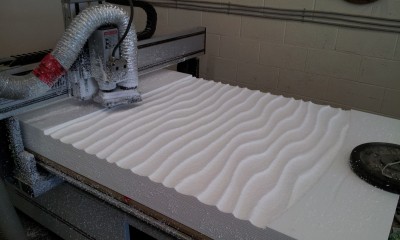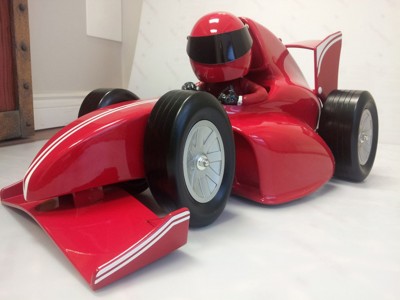By Jamie Oxenham
Many signmakers find themselves contemplating the purchase of a computer numerical control (CNC) router for their business, but feel too unsure to make a decision. It is time for them to ‘pull the trigger,’ as CNC routers have proven themselves a relevant piece of equipment in sign shops everywhere.
For one thing, most CNC routers pay for themselves between one and three years. For another, they allow a sign shop to pick up additional work it would not normally be able to take on.
Apples to apples
CNC routers vary widely and each has its strengths and weaknesses. With the ability today to find them online and purchase them new or used, from anywhere in the world, it is understandable if many potential buyers are confused.
There are pitfalls in letting one’s wallet be the only decision-maker. The lowest-priced CNC router may seem like a bargain at first—and might be fine for little do-it-yourself (DIY) hobby projects—but it can be disastrous for a business in the long run, leading to much heartache down the road.
It is more realistic to consider pricing as only one of a number of factors going into the purchasing decision. Then it will become possible to compare ‘apples to apples.’
Research itself is very inexpensive today. It is easy to contact manufacturers and ask them direct questions about their products and, as mentioned, to use various resources on the Internet to become well-informed. High-quality manufacturers are only a quick web search away.
After all, when running a business, it makes no sense to purchase a machine that is inexpensive upfront if it will mean spending many hours in the future asking people for help. Most sign shops currently face very tight deadlines, with three- to five-day turnarounds becoming the norm for routed pieces.
Having already invested a lot of time and money into their shops, signmakers who would not buy the cheapest cordless drills or table saws should also not be willing to let quality slide when choosing a router, especially given it may well represent the single largest investment in their business.
Component-level quality
One of the most important factors to consider is the quality of the various components that make up the entire router package, from the spindle to the vacuum hold-down.
“The biggest problem regarding the reliability of parts is the use of lower-quality bearings,” says George Klein, president of Techno, which manufactures CNC routers. “The best bearings are currently made in Japan, Germany and Taiwan, but some machines are coming from other emerging markets where the quality is not generally high enough yet. The bearings are critically important on the pumps, blowers and spindles. As the spindles are generally high-speed, reaching 18,000 rotations per minute (RPM) or higher, the bearings have become even more crucial. The higher the speed, the more sensitive they become to any slight defects or insufficient hardness.”
As Klein explains, the importance of attention to quality extends to high-horsepower spindles and other components, too.







